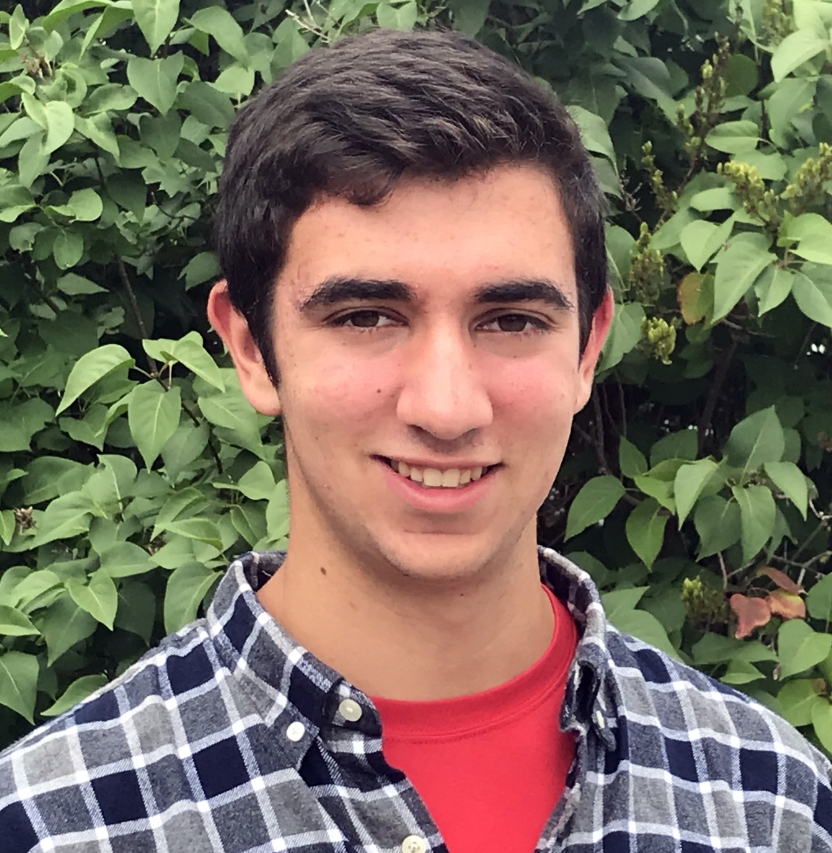Middlebury Junior Wins Barry Goldwater Scholarship

MIDDLEBURY, Vt. – Ben Morris ’22, a molecular biology and biochemistry major from Watertown, Massachusetts, has been named a 2021 Goldwater Scholar by the Barry Goldwater Scholarship and Excellence in Education Foundation. The highly selective scholarship is awarded to sophomores and juniors planning research-focused careers in natural sciences, engineering, or mathematics who were nominated by their home institutions. This year, 410 students received the award from an estimated pool of 5,000 candidates.
“The Goldwater Scholarship supports the next generation of outstanding researchers in math, science, and engineering,” said Lisa Gates, associate dean of fellowships and research at Middlebury. “Ben is an excellent candidate for the Goldwater given his deep interest in science, his extensive undergraduate research experiences, and the commitment he brings to his work with the student advisory committee for the molecular biology and biochemistry major in increasing accessibility and inclusivity in science.”
Morris dove into serious research last summer through the lab of Harvard neuroscientist Jeff Lichtman, where he has worked remotely with postdoctoral fellow Dr. Nagaraju Dhanyasi through this year. Their project examined the development of mice cerebellums using serial electron microscopy, a method for generating high-resolution three-dimensional images from small samples.
“My work with the Lichtman lab has been very interesting due to the vast amount of data we are analyzing, the novelty of the approach—there has never been such a high-resolution reconstruction of neural connections in cerebellar development—and the implications to human health that this work has, such as better understanding the changes that lead to neurodevelopmental disorders and abnormal development,” said Morris.
At Middlebury, Morris has worked closely with Greg Pask, assistant professor of biology, whose lab focuses on how insects use smell to find food and mates, and to communicate. He says the Pask lab has introduced him to exciting new approaches to lab work, including genetics, molecular biology and, soon, electrophysiology.
A computer science minor, Morris says he’s enjoyed the opportunity to work with big data, which has given him insight into the future of his professional field.
“Computing is extremely important to the research currently being performed in all of the biological subfields that I am interested in,” says Morris. “As research techniques become more advanced, biological datasets will continue to grow larger, so researchers will increasingly turn to computational methods to understand what they are studying.”
Despite disruptions to his academic plans over the past year due to the pandemic, Morris says COVID-19 has actually reinforced his interest in pursuing a research career.
“The pandemic has shown that there is a significant need for effective and high-quality biomedical research, both in order to fight diseases and to combat the disinformation that has surrounded this pandemic.”
Along with his academic work, Morris has been an active member of the campus community, having served as a MiddView orientation leader—he co-led a three-day wilderness trip to the Adirondacks—and as an EMT. Last fall he joined the Student Advisory Committee for the molecular biology and biochemistry major, and he is especially interested in seeking ways to improve equity and access to the major for underrepresented students through a new mentoring program.
Gates says the Goldwater application process itself becomes an important moment of reflection for Goldwater nominees, as they identify the more specific areas of research they wish to pursue and the problems they want to explore and solve through their future work. “Candidates need three letters of recommendation from faculty who have taught them in class or supervised them in a research setting who can speak to a nominee’s promise as a researcher, so it’s essential for students to get to know their faculty through courses, office hours—even on Zoom—and research experiences.”
Morris plans to pursue a PhD in molecular biology or biomedical sciences and eventually conduct research in biomedical sciences at a university, medical school, or hospital, with a focus on human disease.
“I hope that the research that I perform will directly help improve medical treatments and save lives.”
Students interested in the Goldwater program or any other fellowship program should contact fellowships@middlebury.edu or visit go.middlebury.edu/fellowships.

